10 Unexpected Locations That Have Become Overrun With Tourists
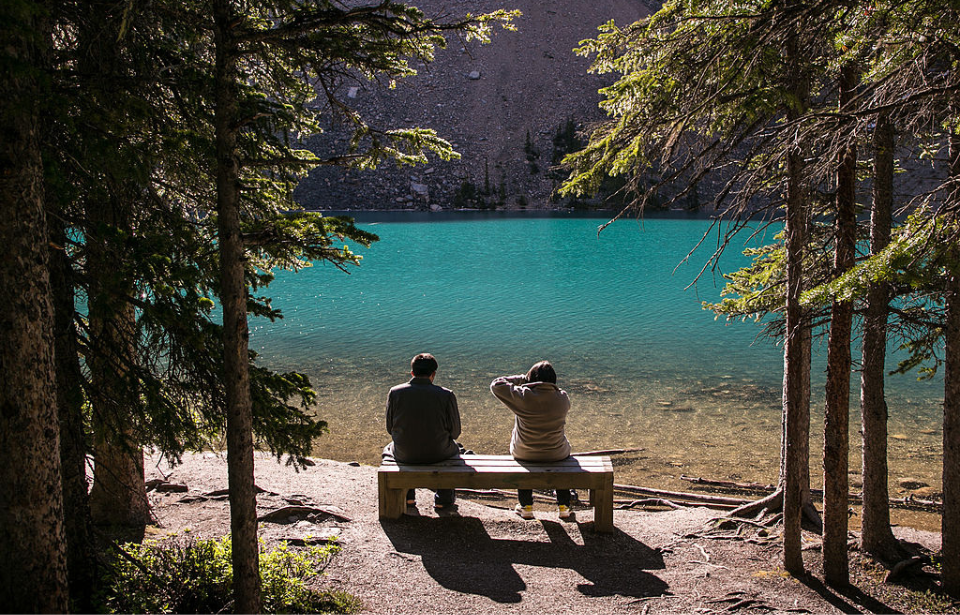
Overtourism is defined by Solimar International as “the increase in tourist numbers at such high volumes that it negatively impacts local residents, visitors, and the surrounding environment of a particular destination.” Simply put, it’s when a place becomes so overcrowded as a result of its tourist industry that the local population begins to suffer.
It’s more common than you might think, as shown by the following list of tourist destinations that are currently struggling with overtourism.
Big Major Cay – Exuma, Bahamas
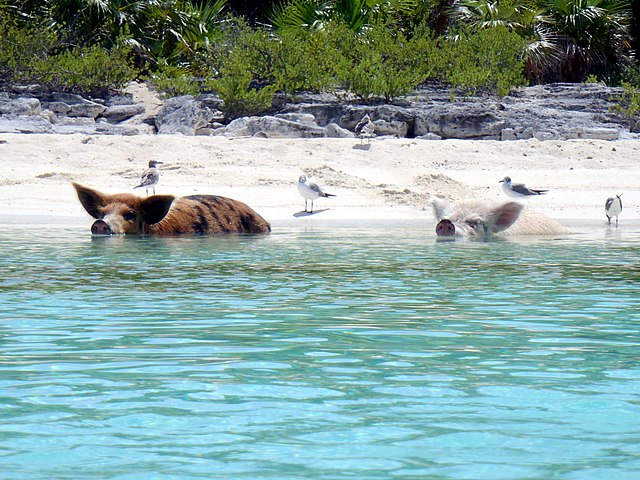
Better known as “Pig Beach,” Big Major Cay is a beach in the Bahamas that’s become popular for the colony of feral pigs that call it home. These wild animals are friendly, and will allow snorklers and other tourists to swim alongside them.
While it’s exciting to swim alongside these creatures, the area’s tourism has started to have a negative impact on the population. The pigs are beginning to die off due to visitors feeding them things they’re not meant to ingest – including alcohol. This is only compounded by the region’s increasing temperatures, which have resulted in watering holes drying up, leaving the pigs with no way to keep themselves adequately hydrated.
Mount Everest – Mahālangūr Himāl, Himalayas

Mount Everest is without a doubt the most niche location on this list, but that doesn’t mean it hasn’t had to deal with an overflow of visitors over the decades. Mountain climbers from across the world travel to the Himalayas each year to reach the summit – so many, in fact, that, despite permits being issued to control numbers, there’s typically a queue extending to the mountain’s peak.
Along with human congestion, the amount of climbers who make the ascent each year have left behind piles of trash that end up becoming frozen and buried in the snow. If that wasn’t enough, there’s actually been an uptick in the number of deaths that occur along the mountain, due to the lack of oxygen at high altitudes.
Kyoto – Honshū, Japan
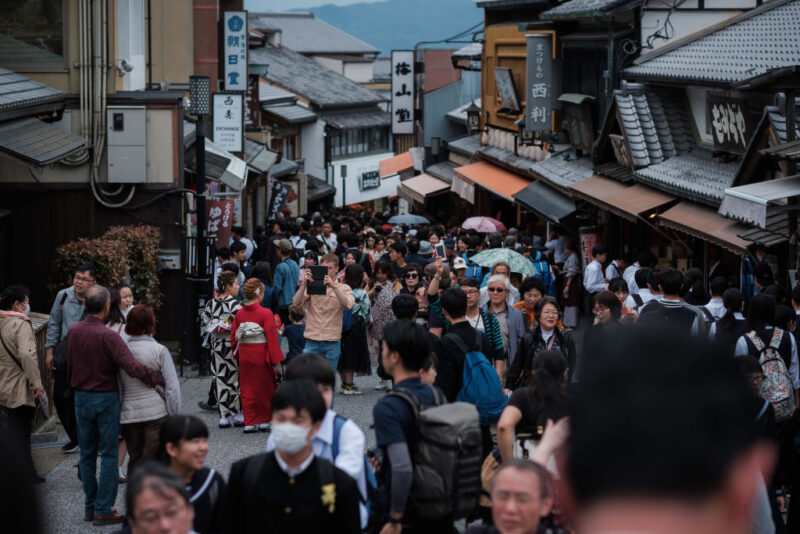
Located on the Japanese island of Honshū, Kyoto is the second-most populous island in the world. It’s also one of the oldest municipalities in all of Japan. While the technology sector makes up the largest portion of the city’s economy, tourism is also among the most important aspects.
Each year, Kyoto’s tourism increases by one million visitors, which has resulted in overcrowding along city streets. Residents can hardly go about their day-to-day lives, due to the amount of congestion on public transit, and trash litters areas that were once clean. On top of this, residential areas have lost their sense of privacy, with visitors venturing away from tourist-geared areas to explore.
San Sebastián – Basque Country, Spain
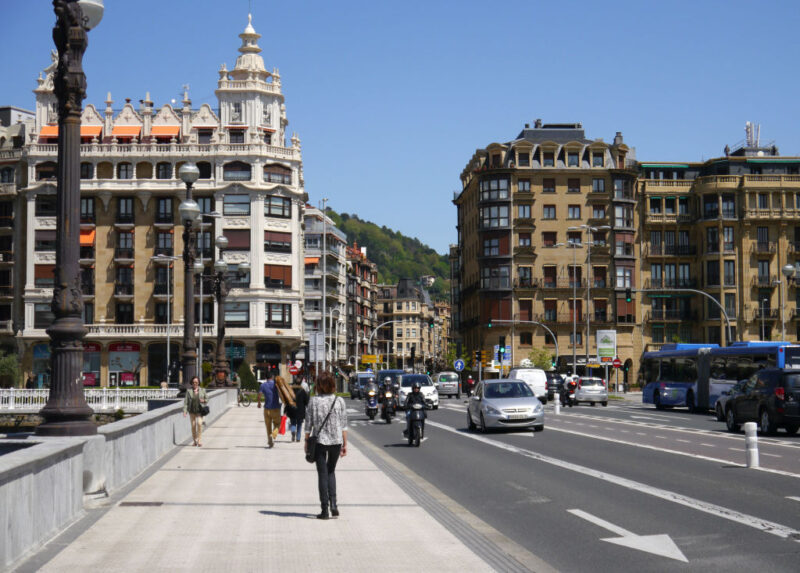
Located near the France-Spain border, San Sebastián is one of the smaller tourist locales in Spain – that doesn’t mean, however, that the city isn’t as popular. It’s considered one of the country’s best-known tourist attractions, with the majority of its income coming from the millions of visitors who book a stay each year.
San Sebastián’s popularity has resulted in local residents taking action. Protests have been held to raise awareness about the problem, with a municipal bylaw being passed in the mid-2010s to regulate tourist apartments that push out locals.
Palau – Oceania, Western Pacific
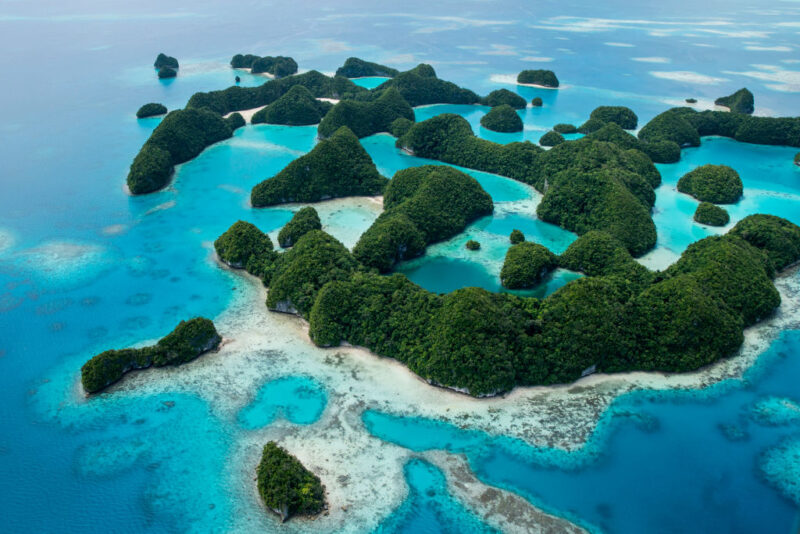
Located in the western Pacific and made up of 340 individual islands, Palau was once a little-known vacation spot in the heart of Oceania. However, the country has since experienced an uptick in tourists, who visit the area to scuba dive and snorkel among the various World War II-era wrecks that litter the seafloor.
Palau is also home to a number of UNESCO World Heritage sites, which also help drive tourism. Among them are the Tet el Bad, an ornate stone coffin in the village of Ollei, and the Rock Islands Southern Lagoon, a picturesque location made up of limestone and coral.
To tackle overtourism, Palau has adopted an approach known as “responsible tourism.” Not only is sunscreen confiscated upon arrival to prevent irreparable harm to the area’s coral reefs, tourists must sign the “Palau Pledge,” binding them to respect the nation’s environment.
Fjaðrárgljúfur – Kirkjubæjarklaustur, Iceland
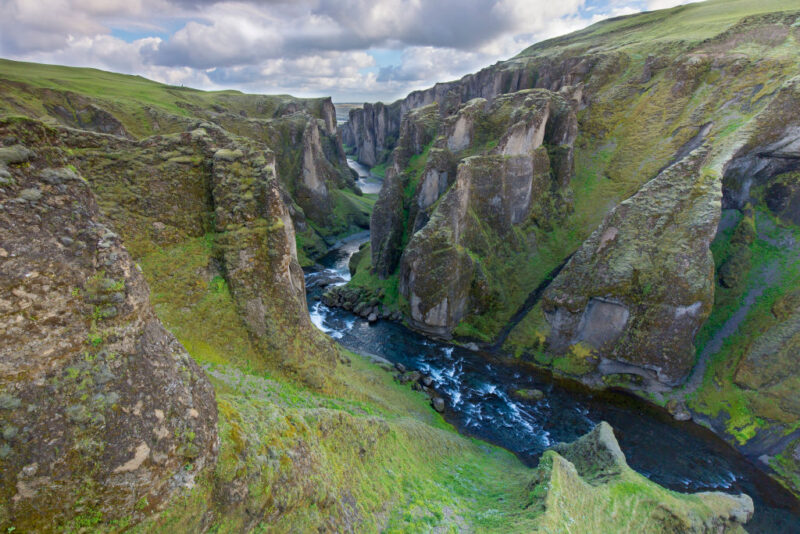
Once considered one of Iceland‘s hidden gems, Fjaðrárgljúfur canyon saw a boom in popularity after being featured in not just Justin Bieber’s music video for “I’ll Show You,” but also in seasons seven and eight of Game of Thrones (2011-19). As could be expected, the sudden uptick in visitors wasn’t something the local environment was prepared to handle.
Between 2015 and ’19, over one million tourists made the trek to Fjaðrárgljúfur, putting a strain on the wildlife and vegetation that call the canyon home. This prompted Iceland’s Environment Agency to close off the area to visitors, with the location now subject to closures throughout the year, depending on how busy the tourism season is.
Banff – Alberta, Canada
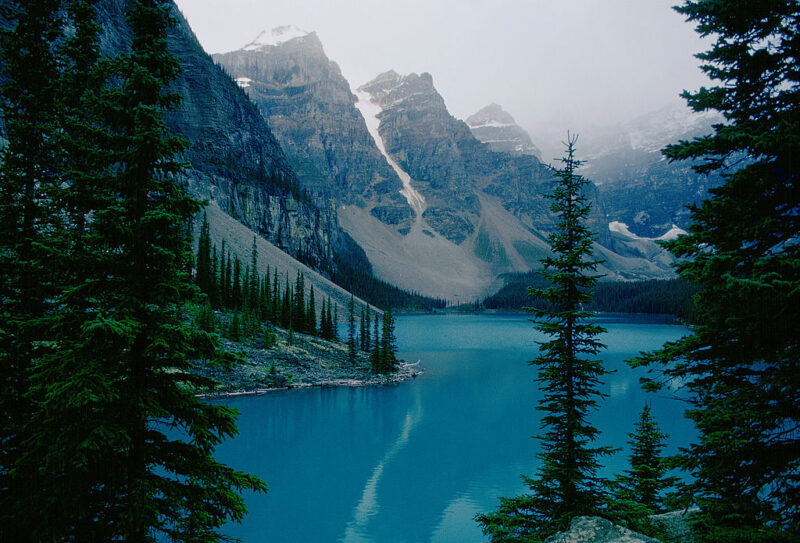
Banff National Park is arguably one of the most popular tourist attractions in all of Canada. The glacier-blue waters, views of the Rocky Mountains and endless opportunities for outdoor fun (think hiking and camping) mean it’s not hard to understand why the location in the heart of Alberta has fell victim to overtourism.
Annually, some four million people visit Banff, bringing with them an insurmountable amount of traffic. To combat this, Parks Canada created the Tourism Together collaboration effort, which identified five core principles for residents living in the area and those who visit: wildly innovative, better tomorrow, tourism together, connected by nature and lead by example.
Among the initiatives to come from this include enacting a reservation system, providing more reliable mass transit and closing certain locations to private vehicles.
Dubrovnik – Dalmatia, Croatia
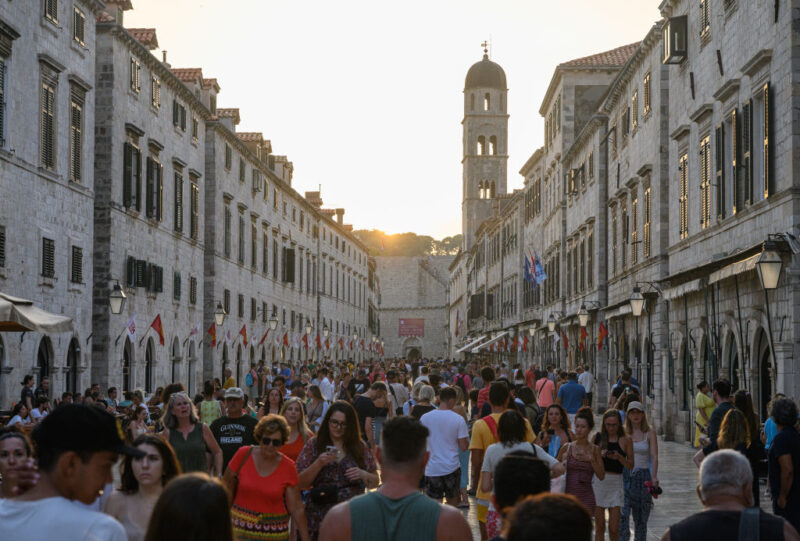
Yet another location to fall victim to the fervor of being featured on Game of Thrones – it served as the King’s Landing in the popular HBO series – Dubrovnik, Croatia is known for being one of the cheapest places to fly to in Europe. This, along with its historic streets, beautiful cafés and overall breathtaking scenery, have meant 3.8 million tourists visited the city in 2022.
On top of those who make the trip by air, Europe’s growing cruise ship industry has also contributed to Dubrovnik’s overtourism. According to Responsible Travel, an estimated 742,000 passed through the city on 538 different vessels in 2017. However, unlike other visitors, these sightseers spend very little money, meaning they contribute minimally to the area’s economy.
Amsterdam – North Holland, Netherlands
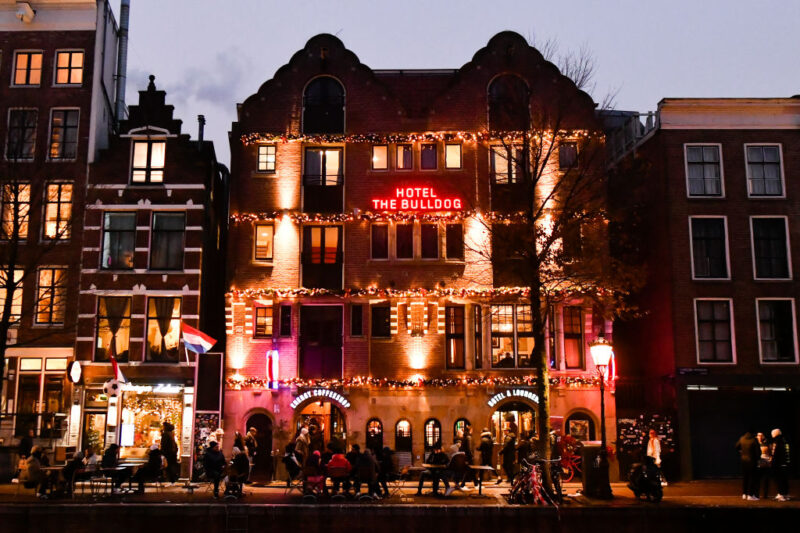
You know a city is suffering from overtourism when officials actively tell anyone thinking of making a trip to not visit. That’s exactly what’s happening with Amsterdam, the capital city of the Netherlands. The campaign is targeted at British males, in particular, who tend to visit to take part in the metropolitan area’s party scene.
When would-be British tourists search up the city online, they’re met with a video that warns of the consequences their activities can reap if they’re caught by the authorities. As such, it’s been recommended that visitors look for destinations outside of the city center or, better yet, elsewhere in the country.
Hanauma Bay – Oahu, Hawaiian Islands
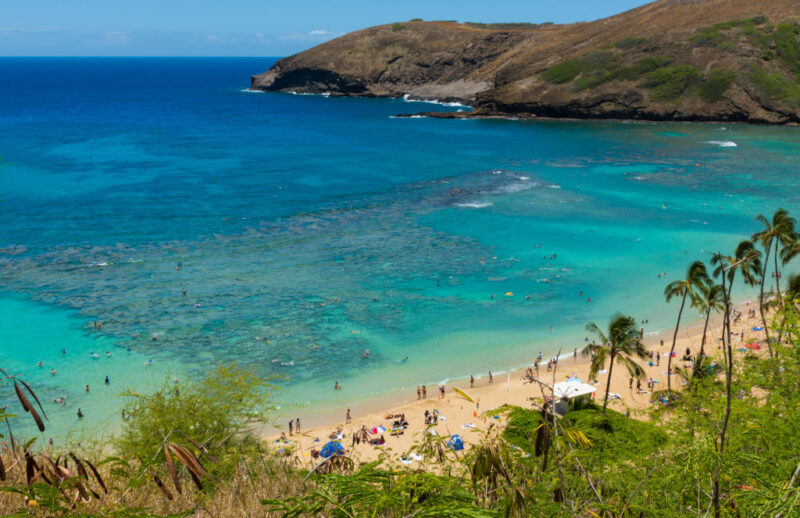
Home to some of Hawaii‘s best snorkeling opportunities, Hanauma Bay, on the southeastern side of Oahu, has become overrun with tourists in recent years. There are a number of reasons for this, including its clear water, the abundance of sea turtles and fish, and the fact it’s a mere 30-minute drive from one of the Hawaiian Islands’ most popular cities: Honolulu.
Prior to 2020, an estimated one million tourists visited Hanauma Bay each year, which, while good for the area’s economy, has wreaked havoc on the local ecosystem. This is due to sunscreen, which contains chemicals that cause harm to the coral reefs that make up the area’s underwater habitat.
More from us: 7 Lesser Known National Parks And Why They’re Worth A Trip
In an attempt to show visitors how detrimental their activities can be to the bay and its ecosystem, everyone must watch a nine-minute video about its history, wildlife and what they can do to minimize their environmental footprint.
